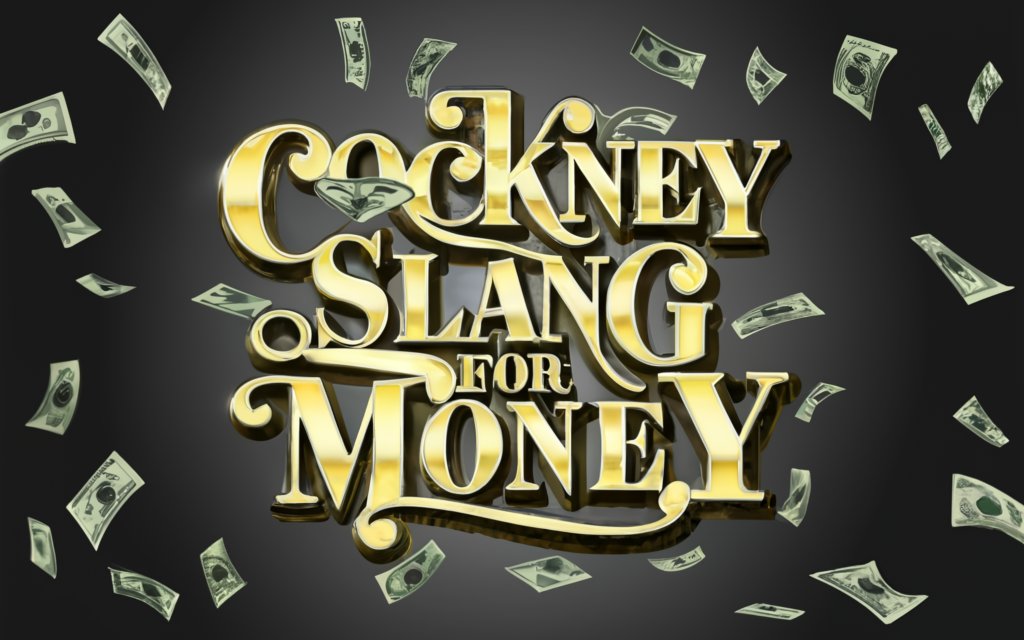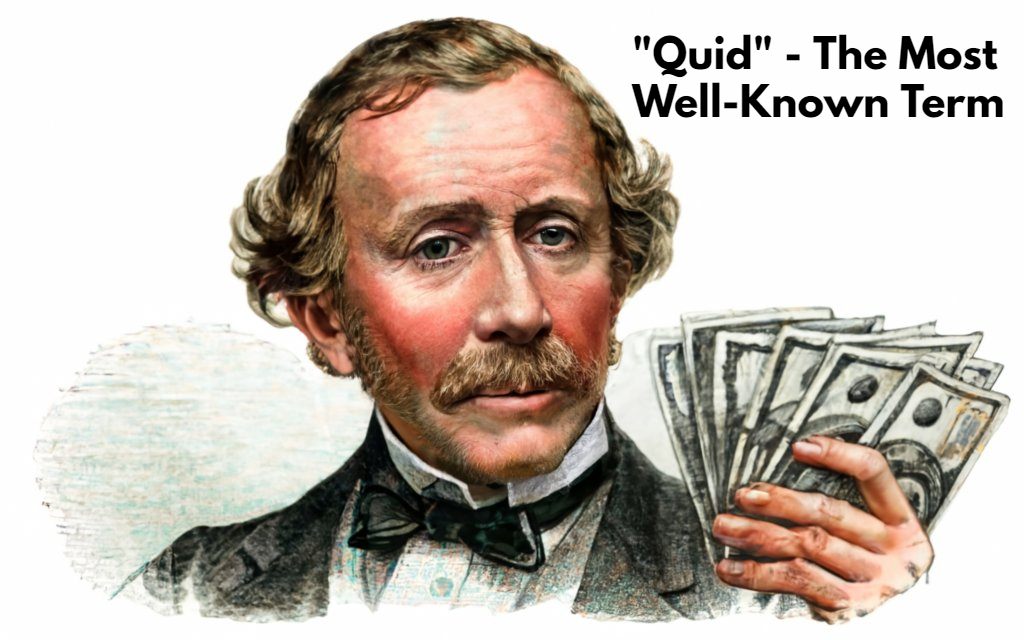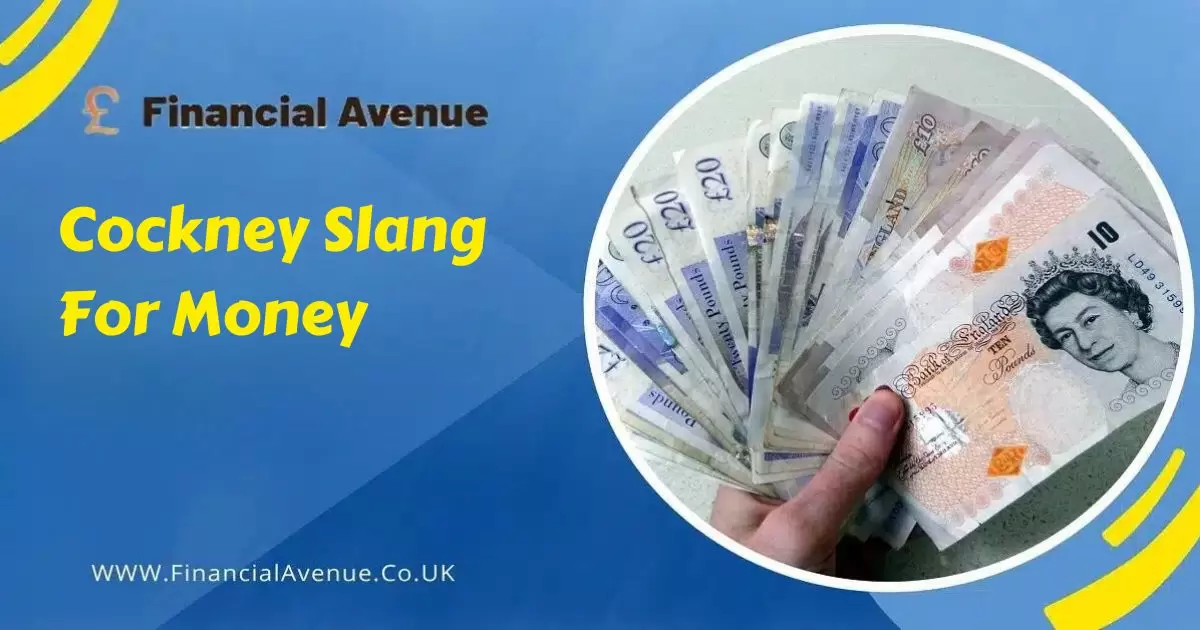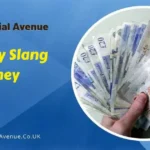Cockney rhyming slang is a colorful dialect that originated in the East End of London. It has been adding a dash of humor and wit to everyday conversations for generations. Cockney slang for money is particularly inventive, with a wide array of amusing terms and expressions. These can confuse and delight outsiders in equal measure.
In this article, we’ll delve into the world of Cockney slang for money. We’ll explore its origins, most popular phrases, and enduring significance in London culture and community.
Key Takeaways
- Cockney slang is a colorful and inventive aspect of London’s East End dialect, with terms like “quid,” “pony,” and “monkey”
- Many Cockney expressions for money have fascinating origins, drawing inspiration from history, popular culture, and rhyming patterns.
- Despite the changes in London’s demographics, Cockney slang remains a beloved part of the city’s culture and identity.
- Learning and using Cockney money slang can be a fun way to connect with London’s rich linguistic heritage
- It’s important to be mindful of context and tone when incorporating these terms into your own vocabulary.
- The popularity of Cockney slang for money is a testament to its role in fostering a sense of shared identity
Cultural Significance of Cockney Slang

Cockney slang is not just a linguistic quirk; it’s a cultural emblem deeply rooted in the history and identity of London’s East End.
The vibrant tapestry of Cockney expressions, especially those related to money, serves as a testament to the creativity and resilience of the working-class communities that have long called this area home.
By exploring the cultural significance of Cockney slang, we gain a deeper appreciation for the rich heritage and sense of belonging it imparts to Londoners, both past and present.
Evolution of Cockney Slang
The evolution of Cockney slang reflects the dynamic nature of language and the enduring spirit of innovation within the East End community.
From its humble origins in the streets of London to its modern-day adaptations in digital communication, Cockney slang for money has continued to captivate and entertain people across generations.
By tracing the evolution of these colorful expressions, we uncover not just linguistic changes but also the social, economic, and cultural forces that have shaped the development of Cockney slang over time.
Influence on Language and Communication
The influence of Cockney slang extends far beyond the boundaries of London, leaving an indelible mark on the broader English language and communication landscape.
The playful and inventive nature of Cockney expressions for money has inspired creativity in language use, influencing slang adoption in diverse contexts and contributing to the richness of everyday conversations.
By examining the impact of Cockney slang on language and communication, we gain insights into how linguistic traditions can transcend geographical boundaries and foster connections across diverse communities.
Gender and Diversity in Cockney Slang
Exploring the representation of gender and diversity in Cockney slang sheds light on the inclusive and egalitarian nature of these linguistic expressions.
While some terms may have historical or cultural associations with specific genders or identities, Cockney slang for money embraces a wide spectrum of voices and experiences, reflecting the diversity and vibrancy of London’s multicultural society.
By celebrating the gender-inclusive and diverse nature of Cockney money slang, we honor the spirit of unity and solidarity that underpins these colorful expressions
Educational and Preservation Efforts
Efforts to educate and preserve Cockney slang for money play a crucial role in safeguarding this unique aspect of London’s linguistic heritage for future generations.
By documenting, teaching, and promoting Cockney expressions, we ensure that these colorful terms continue to enrich our understanding of language, culture, and community identity.
Through educational initiatives and preservation efforts, we not only preserve the legacy of Cockney slang but also foster a sense of pride and connection to the East End’s rich linguistic traditions.
Comparative Analysis with Other Slang Varieties
A comparative analysis of Cockney slang for money with other slang varieties offers a fascinating glimpse into the diverse and dynamic world of linguistic creativity.
By exploring commonalities, differences, and cultural nuances across different slang traditions, we gain a deeper appreciation for the universal human impulse to play with language and create unique expressions.
Through comparative analysis, we highlight the interconnectedness of linguistic diversity and the ways in which slang reflects the shared experiences and values of communities around the world.
Common Cockney Slang Terms for Money
“Quid” – The Most Well-Known Term
The most recognizable Cockney slang term for money is undoubtedly “quid.” Derived from the Latin word “quid,” meaning “what,” this term has been used to refer to the British pound sterling since the late 17th century. Over time, “quid” has become synonymous with money in general. You’ll often hear Londoners using variations like “squid” or “nicker” in casual conversation.

“Pony” – Referring to a Specific Amount
Another common Cockney expression for money is “pony,” which specifically refers to the sum of £25. The origins of this term are somewhat obscure. It’s thought to have emerged in the 19th century, possibly in reference to the value of a small horse or pony. Here’s an amusing anecdote to illustrate its usage:
I once overheard a market trader in Brick Lane telling a customer, “That’ll be a pony, mate.” The confused shopper handed over a £20 note, only to be told, “No, no, a pony’s twenty-five quid!” The customer, clearly not well-versed in Cockney slang, sheepishly dug out an extra fiver.
“Monkey” – A Larger Sum of Money
When you hear a Londoner mention a “monkey in money,” they’re not talking about the adorable primate, but rather a sum of £500. The term is believed to have originated in the early 20th century, possibly as a reference to the 500 rupee banknote, which featured a monkey on one side. You might hear expressions like “I just dropped a monkey on a new suit” or “He owes me a monkey for that job.”
“Grand” – A Substantial Amount
While not exclusively Cockney, “grand” is a widely used slang term for £1,000. It’s a fitting description for a substantial sum of money, and you’ll often hear it used in phrases like “That car cost me 10 grand” or “I need to save up a few grand for my holiday.” Interestingly, “grand” is one of the few slang terms for money that doesn’t have a Cockney rhyming counterpart.
Read more about Tricks To Get A Council House
Lesser-Known Cockney Money Slang
“Lady Godiva” – A Fiver

One of the more whimsical Cockney expressions for money is “Lady Godiva,” which refers to a £5 note. The term comes from the famous legend of Lady Godiva, who supposedly rode naked through the streets of Coventry to protest her husband’s high taxes. In Cockney slang, “fiver” rhymes with “Lady Godiva,” creating a playful and memorable phrase for this common denomination.
“Commodore” – A Score (£20)
“Commodore” or “A Score in Money” is a lesser-known Cockney term for £20, derived from the rhyming phrase “Commodore’s door,” which refers to the door of a ship’s captain’s cabin. While not as widely used as some other expressions, “commodore” adds a nautical flair to discussions about money, reflecting the East End’s historic ties to the Thames and the maritime industry.
“Ton” or “Century” – £100
Borrowed from cricket terminology, “ton” or “century” is used in Cockney slang to denote a sum of £100. Just as a batsman who scores 100 runs is said to have scored a “century” or “ton,” someone who has £100 might say they have a “ton” or “century” of money. It’s a clever example of how Cockney slang often draws inspiration from popular pastimes and sports.
“Macaroni” – £25
One of the more intriguing pieces of Cockney money slang is “macaroni,” which refers to the sum of £25. The term originates from the 18th-century fashion trend of young men who had returned from the Grand Tour of Europe, known as “macaronis” for their fondness for Italian cuisine. These fashionable fellows were often depicted in satirical cartoons with a coin worth 25 pence tucked into their elaborate wigs, leading to the association between “macaroni” and the value of £25. It’s a fascinating example of how Cockney slang often has roots in history and popular culture.
You need to Do This If Someone Is Using Your Name and Address Fraudulently
Cockney Slang in Modern Times
Despite the rapid changes in London‘s demographics and the influence of globalization, Cockney slang remains a beloved part of the city’s culture and identity. While some older terms may have fallen out of use, many Cockney expressions for money have adapted to the digital age, finding new life in online forums, social media, and popular culture.
In recent years, TV shows like “EastEnders” and “Peaky Blinders” have helped to keep Cockney slang in the public consciousness, introducing new generations to the colorful language of London’s East End. Similarly, musicians like The Libertines and Chas & Dave have celebrated Cockney culture in their songs, often incorporating slang terms for money and other aspects of daily life.
The enduring popularity of Cockney slang is a testament to its role in fostering a sense of community and shared identity among Londoners. By using these playful and inventive expressions, people can signal their connection to the city’s rich history and unique character, even as London continues to evolve and change.
Learning and Using Cockney Money Slang
If you’re interested in incorporating some Cockney money slang into your own vocabulary, there are a few tips to keep in mind. First, try to learn the terms in context, rather than just memorizing a list of phrases. Pay attention to how Cockney slang is used in conversation, and practice using it yourself in appropriate situations.
It’s also important to be mindful of the tone and setting when using Cockney slang. While it can be a great way to add humor and color to casual conversations, it may not be suitable for more formal or professional contexts. As with any form of slang or jargon, it’s best to use Cockney terms sparingly and only when you’re confident that your audience will understand and appreciate them.
Finally, don’t be afraid to ask for clarification if you hear a Cockney expression that you’re not familiar with. Most Londoners will be happy to explain the meaning behind a particular phrase, and you may even learn some new slang in the process!
Conclusion
Cockney slang for money is a fascinating and entertaining aspect of London‘s linguistic heritage. From the well-known “quid” to the lesser-known “macaroni,” these colorful expressions add depth and character to conversations about wealth, finance, and daily life in the East End.
By exploring the origins and meanings of these terms, we gain a greater appreciation for the ingenuity and humor of Cockney culture, as well as its enduring influence on London‘s identity. Whether you’re a born-and-bred Londoner or a curious outsider, learning a few choice phrases of Cockney money slang is a great way to connect with the city’s rich history and vibrant community.
So the next time you’re in the East End and someone tells you that a “Lady Godiva” will get you a pint and a packet of crisps, you’ll know exactly what they mean – and perhaps you’ll even feel inspired to drop a “monkey” or two of your own!

Samuel is a finance expert with over a decade of banking and investment experience. He provides readers with practical, actionable advice on personal finance topics ranging from retirement planning to taxes. Samuel combines his professional knowledge with his passion for writing to make complex financial subjects easy to understand. When he’s not publishing articles, you can find this local dad exploring the city with his family.










